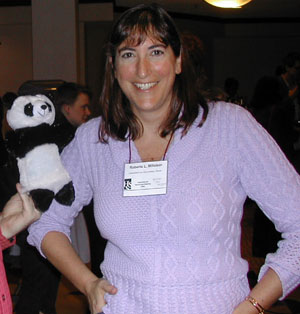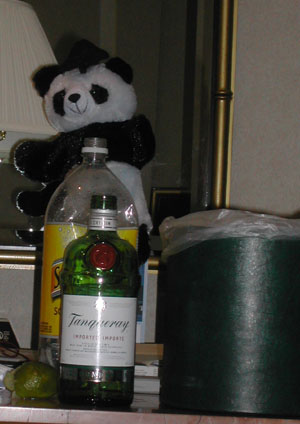SPSP 2013 Plenary session #3: James Griesemer
Tweeted from the 4th biennial conference of the Society for Philosophy of Science in Practice in Toronto, Ontario, Canada, on June 28, 2013.
Tweeted from the 4th biennial conference of the Society for Philosophy of Science in Practice in Toronto, Ontario, Canada, on June 28, 2013.
Tweeted from the 4th biennial conference of the Society for Philosophy of Science in Practice in Toronto, Ontario, Canada, on June 28, 2013, during Concurrent Sessions V
Dear Natural Selection,
Can we have a chat about weeds?

I’ve been derelict in my duty to inform you that 2009 has been declared the Year of Science, which is, of course, just an excuse to celebrate science-y goodness every day. Each month has a theme and a variety of options for exploring that theme.
Guest Blogger: Prof. Steve Steve

My adventures with John Wilkins at the PSA meeting in Vancouver continue. Last evening, Wilkins brought me to a reception where I had the pleasure of mingling with a great many philosophers who have made philosophical studies of various aspects of evolutionary biology. Strangely, these minglings were punctuated with camera flashes. Here I am trying to have a word with Robert Brandon as the paparazzi close in on us.

Here I am trying to catch up with Roberta Millstein (who blogged at the much-missed Philosophy of Biology) about her recent move to UC Davis. Once again, some interloper with a camera decided to butt in. How do philosophers manage to carry on a conversation with distractions like these? (Why, for that matter, were there paparazzi in a gathering of academic philosophers?)
Guest Blogger: Prof. Steve Steve

My esteemed Panda’s Thumb colleague John Wilkins invited me to attend the PSA meeting in Vancouver. It seemed like a good idea at the time, so I agreed.
Last evening started pleasantly enough. I met Wilkins, John Lynch, Ben Cohen and David Ng, and Janet Stemwedel (from whose blog I am writing to you now) for refreshments. Yes, there was a bit of confusion when it turned out that the hotel didn’t have an ice machine on every floor. As well, there was the puzzle of how properly to utilize the fresh limes for beverages in the absence of a knife. (The solution: quick and forceful jabs with a house-key. There was no suitably clever solution to the puzzle of how to extract a cork without a corkscrew, however, so the wine remained in its bottle.) Still, there was lively conversation and good cheer.
After the ScienceBloggers confab, we joined the larger conference reception, where I greeted an important philosopher of science:
Following up from yesterday’s post about how knowledge about the biological basis for X doesn’t tell us whether X is to be valued or pathologized, I need to put a few more points (including some questions) on the table.
First, in the comments thread to the Feministing post that prompted my post, a common (and frustrating) misunderstanding of claims from evolutionary biology has reared its head:
I wouldn’t put the clitoris in the same catagory as the male nipple by any means. The clitoris is not a by-product, and by the way neither is sex. And “liking sex that does not result in reproduction” could be applied to heterosexuality as well. …
Why do most of you not assume that homosexuality is a product of evolution? A direct product (not a by-product) of being human? If it wasn’t a desirable trait in some way then it would have been eliminated through natural selection.
You’ll recall that the Lancaster(California) school district has recently adopted a “science philosophy” that calls for critical thinking about evolutionary theory … but no other scientific theory in the curriculum.
You’ll recall that the school district trustees didn’t seem to view this as having anything to do with opening the door for the teaching of creationism or intelligent design.
If you read the comments, though, you’ve discovered that Alex Branning, the entrepreneur who spearheaded this new policy, and who claimed to have no truck with creationists or ID proponents, is the registered owner of the domain evolutionisimpossible.com.
Hey, guess what? A California school district has adopted a new science policy aimed at getting students to think more critically … about evolutionary theory. It is not entirely clear whether members of the Lancaster School District board of trustees recognize that the policy effectively singles out evolution for scrutiny, or whether they were duped. But I’m pretty sure I’ve heard this song before.
I meant to post yesterday on Darwin Day, but I was swept up in doing tasks around the house that some have posited women are better at and/or care about more for reasons that lie deep in our evolutionary past. I don’t buy it (nor do others, who you are encouraged to read), and the Free-Ride household seems to me a good example that tidiness is not a sex-linked trait (or, if it is, it’s riding on the Y chromosome).
Anyway, first I wanted to link a fine appreciation of Darwin written by Michael Weisberg and Richard M. Leventhal, both of the University of Pennsylvania. The closing paragraphs left me a little verklempt:
The vision of life that moved Darwin to such poetic words is this: There are more than 10 million species on this planet, and despite this biodiversity, all species have profound similarities to one another. Humans, dogs, squirrels, and pigeons all have the same basic internal anatomy. Our cell structure is shared with most other animals, fungi, and plants. Most dramatic of all, every form of life on our planet shares the same genetic materials and amino acids.
Only Darwin’s ideas can explain these amazing facts. He taught us that the similarities among species are the result of shared common ancestry. All life is part of the same large and diverse family. We human beings are not distinct from the natural world – instead, we are as much a part of it as are giant redwoods, gray wolves, sea slugs, and chimpanzees. This profound discovery about the world and our place in it is indeed worth celebrating.
It’s hard to feel alone in the world when you start to see nature in this way!
I also had occasion yesterday to pick up a book I haven’t read in a while, the excellent biography Darwin : The life of a tormented evolutionist by Adrian Desmond and James Moore. Doing so brought to mind one of the things I really respect about the man.
It is fairly well known that Darwin had more or less worked out his theory of evolution (and the role of natural selection in it) some twenty years before On the Origin of Species was published in 1859. There are various reasons it took Darwin so long to get his theory into print, but in 1858 he was chugging along getting all the details drafted. Then, on 18 June, 1858, he received some mail from Alfred Russel Wallace, another naturalist — a letter that laid out a theory of evolution that struck Darwin as very much like his own.
Desmond and Moore note that there were differences in the two theories. Darwin, however, fully emersed in spelling out his own theory, couldn’t help reading his theory into Wallace’s letter.
This could have become an object lesson for students of history in not waiting too long to put things on paper, and we might have been celebrating Wallace day. Or, if Darwin had had some Isaac Newton-style mean in him, he could have found a way to crush Wallace’s claim to priority (“Letter? What letter?”). Instead, Darwin showed admirable fellow-feeling for his fellow scientist. Desmond and Moore write:
Wallace asked him to send the paper to Lyell, which he did with a wailing note. Wallace did not mention publication, but Darwin would ‘of course, at once write and offer to send [the paper] to any journal’ of Wallace’s choice. Yet ‘all my originality, whatever it may amount to, will be smashed.’ Lyell mulled over the problem and came up with the solution; they should announce their discoveries jointly. Darwin concurred, trying to suppress the niggling fear that this might look suspicious, as though he was stealing Wallace’s credit. Hooker had seen his 1844 essay, Asa Gray at Harvard had a long abstract of it
so that I could most truly say and prove that I take nothing from Wallace. I should be extremely glad now to publish a sketch of my general views in about a dozen pages or so. But I cannot persuade myself that I can do so honourably … I would far rather burn my whole book than that he or any man should think that I had behaved in a paltry spirit.
(p. 469)
In other words, Darwin not only encouraged and communicated with Wallace, a potential competitor, but when it seemed as though Wallace had gotten the answer (the same answer!) before him, Darwin was willing to help him get it published. Even when his mentor Lyell persuaded him that a joint announcement of the answer would be acceptable, Darwin was still concerned that no one think him to be behaving in “a paltry spirit”. He didn’t want Wallace to be robbed of credit, and he didn’t want anyone else in the scientific community to think him (Darwin) a jerk — because decent human relationships in the community of science mattered to him.
It’s enough to make me want to exhume him just to give the man a kiss. Can we reappropriate the word “Darwinist” to mean scientists who care deeply about being decent human beings — even when they’re doing science? Because really, could anyone be against that kind of Darwinism?